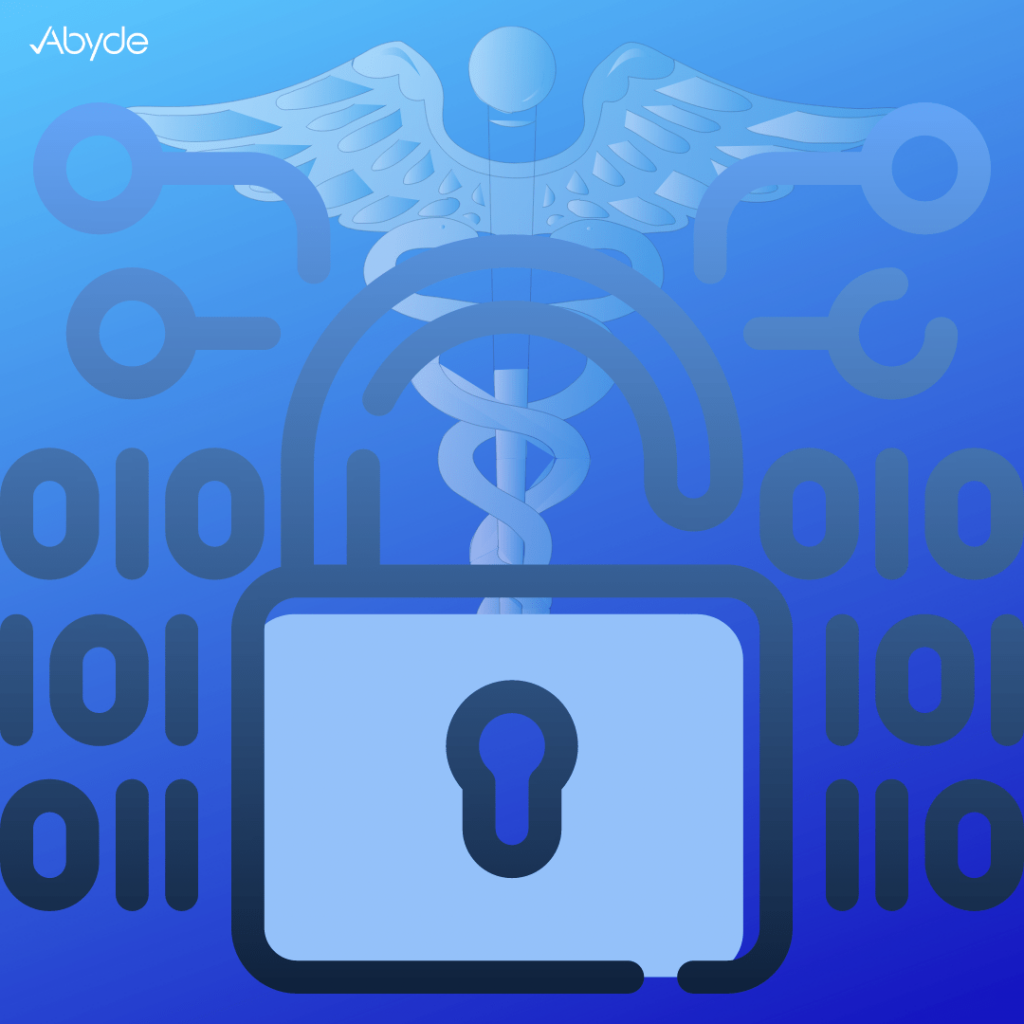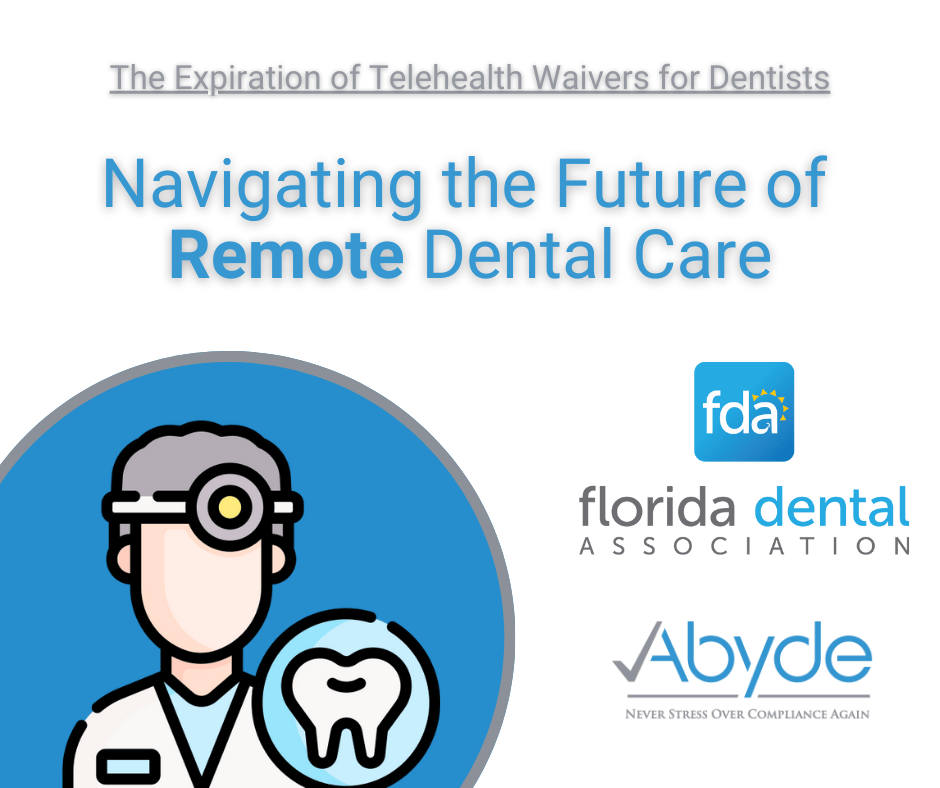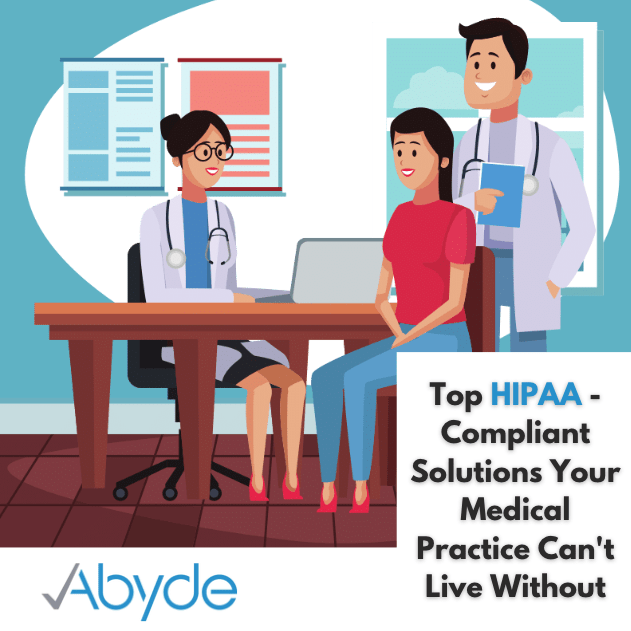May 30, 2023 We always talk about how important it is to set protocols to avoid HIPAA violations, but what exactly are you avoiding? The sobering examples of HIPAA violations are essential to be aware of so that you understand the gravity of safeguarding patient privacy and maintaining the trust placed in healthcare providers. Incidents serve as stark reminders of the profound consequences that can arise when personal health information falls into the wrong hands. These violation examples underscore the utmost importance of HIPAA compliance and the ethical imperative to protect patients’ privacy. Digital Data Disaster A healthcare organization falls victim to a malicious cyberattack, compromising its entire database of patient records. Personal information, medical histories, and even Social Security numbers are exposed, leaving thousands of individuals vulnerable to identity theft and potential harm. This incident serves as a critical reminder that cybersecurity measures must be robustly implemented to protect patient data from the ever-evolving threats lurking in the digital realm. Gossip Gone Wrong A trusted healthcare provider carelessly discusses a patient’s confidential medical condition with their friends during a casual gathering. This “meaningless” gossip spreads to an acquaintance of the patient, eventually getting back to said patient. The careless discussion that violated the patient’s right to privacy ends up in the papers. The patient is beyond embarrassed and the healthcare provider is in for a whirlwind of hurt including reputational carnage. This ever-so-cautionary tale accentuates the importance of professionalism and the duty to keep patient information strictly confidential. Insider Trading In a breach that shakes the foundation of trust, a trusted employee intentionally accesses patient records without a valid reason. Driven by curiosity or malintent, they betray the ethical responsibilities bestowed upon them. This particular violation underscores the significance of stringent access controls, regular auditing, and thorough background checks to maintain the integrity of patient information. Misdirected Medical Records A healthcare provider accidentally sends a patient’s medical records to the wrong individual. This innocent mistake exposes sensitive information to an unintended recipient, potentially compromising the patient’s privacy and causing emotional distress. This incident serves as a reminder of the importance of proper verification processes, double-checking recipient details, and implementing secure methods for transmitting confidential information. Disappearing Device A healthcare professional’s misplaced or stolen mobile device, containing unencrypted patient data, becomes a ticking time bomb. The consequences of the lost, unprotected device could be severe – ranging from identity theft to blackmail or even unauthorized disclosure of personal health information if caught in the wrong hands. This emphasizes the need for strong device security measures, including encryption, remote wiping capabilities, and constant vigilance when handling portable devices. In conclusion, HIPAA violations demand our utmost attention and respect for patient privacy. The examples here demonstrate the real-world implications of breaches in healthcare data security. As individuals and organizations, we must prioritize robust safeguards, ongoing training, and strict adherence to HIPAA guidelines to ensure the protection of sensitive patient information. Let Abyde unite our efforts to safeguard healthcare information and “Abyde” by HIPAA laws.
Million-Dollar General
May 25, 2023 In a series of inspections that can only be described as “Oops, they did it again,” the U.S. Department of Labor discovered unsafe conditions at nine Dollar General stores across four states: Maine, North Dakota, Ohio, and Wisconsin. The Occupational Safety and Health Administration (OSHA) has proposed a whopping $3.4 million in penalties for these violations, adding to the already staggering $21 million in fines that Dollar General has accumulated since 2017. It turns out that Dollar General stores have a knack for blocking everything that’s meant to keep employees safe. Federal safety inspectors often find aisles blocked by stacks of merchandise, emergency exits obstructed, fire extinguishers hidden from view, and electrical panels buried under a mountain of boxes. To make matters worse, these unsafe conditions exposed Dollar General employees to risks like fire, electrical shocks, and getting struck by falling merchandise. Yikes! Assistant Secretary for Occupational Safety and Health, Doug Parker, had some choice words for DG saying, “Dollar General continues to expose its employees to unsafe conditions at its stores across the nation. As one of the nation’s largest retailers, the company must focus its attention on resolving these issues and making corporate-wide changes to protect the safety and well-being of the people they employ.” Take a look at some of the details of the million-dollar mishaps: Enfield, Maine In November 2022, OSHA found emergency exits blocked by rolling containers and boxes. They also discovered carts clogging the aisles, preventing quick access to fire extinguishers. To top it off, the store had goods stacked unsafely up to 6 feet high around an electrical panel. Oh, and the fire extinguishers hadn’t been visually inspected as required. OSHA slapped DG Retail LLC, the operator of the Enfield store, with five repeat violations and proposed $321,419 in penalties. Casselton, Garrison, Hillsboro, Killdeer, Minot, and Tioga, North Dakota State fire marshals and concerned citizens tipped off OSHA about hazardous conditions at Dollar General stores in North Dakota. Inspections between October and December 2022 revealed blocked exit routes, doors, fire extinguishers, and electrical panels. In Minot, things took an even scarier turn when six employees were exposed to toxic vapors after chemical containers ruptured. OSHA cited Dollar General for failing to provide adequate protection, training, and clean-up procedures. The result? 32 violations in just two months and an astonishing $2.5 million in proposed penalties. Kettering, Ohio In November 2022, OSHA descended upon a Dollar General store in Kettering, only to find exit routes, fire extinguishers, and electrical panels blocked by merchandise and other materials. Talk about a safety hazard! OSHA wasn’t laughing and issued citations for three repeat violations, amounting to $270,116 in proposed penalties. Kewaunee, Wisconsin Responding to a complaint about unsafe working conditions, OSHA discovered a disturbing scene in Kewaunee. Exit routes, fire extinguishers, and electrical panels were blocked by unsafe stacks of merchandise – sound familiar?? OSHA didn’t hold back and issued citations for four repeat and four willful violations, including unsafe electrical cords, uninspected fire extinguishers, and crushing hazards. OSHA proposed $367,216 in penalties. In conclusion, Dollar General Corp. and Dolgencorp LLC have made a name for themselves in the world of workplace safety violations. They’ve even earned a prestigious spot in OSHA’s Severe Violator Enforcement Program. With a jaw-dropping tally of 19,000 stores and 28 distribution centers in 47 states, they sure know how to spread the joy of hazardous working conditions far and wide. Laughter is the best medicine, but workplace safety is no joke. Let’s hope Dollar General finally gets its act together and stops turning their stores into a circus of safety fails. Until then, let’s all stay safe and keep our exit routes clear of discounted merchandise!
The Expiration of Telehealth Waivers for Dentists: Navigating the Future of Remote Dental Care
May 23, 2023 Over the past couple of years, telehealth has revolutionized the healthcare industry, including dentistry. However, as the COVID-19 pandemic wanes and the healthcare landscape evolves, the telehealth waivers that allowed dentists to provide virtual care through non-compliant platforms are expiring. Let’s explore the implications of these expiring waivers and how dentists can navigate the future of remote dental care. The Rise of Telehealth in Dentistry: Telehealth emerged as a crucial tool during the pandemic, enabling dentists to connect with patients remotely for consultations, follow-ups, and non-emergency care. These waivers expanded access to dental services, particularly for underserved populations, reduced unnecessary in-person visits, and improved overall patient experience. Dentists embraced telehealth to ensure continuity of care while minimizing the risk of virus transmission. Implications of Expiring Waivers:Using platforms like Apple Facetime, Skype, Zoom, and other non-public facing platforms were part of the Notice of Enforcement Discretion the OCR laid out in March of 2020. Now that virtually every EHR/PM solution and other technologies have emerged over the last 3 years, practices can easily implement compliant solutions. Dentistry will always predominantly be an in-person health care service but with the expiration of telehealth waivers, those dentists that found telehealth an important addition to their practice need guidance on which compliant platforms to use. Dentists must evaluate the effectiveness, efficiency, and patient satisfaction associated with virtual care. Additionally, they should consider the legal and regulatory implications of providing telehealth services without waivers and adapt their practices accordingly. Navigating the Future of Dental Care: To navigate the post-waiver landscape, dentists can take several steps. First, staying informed about the evolving guidelines and regulations surrounding telehealth is crucial. • The first step is assessing risks and vulnerabilities through a Security Risk Analysis. This knowledge will help dentists adapt their practices and comply with existing laws. • Second would be to have policies in place to ensure the telehealth services these dentists provide to patients is telling the story of how they are protecting that sensitive patient information. • Finally, investing in technology and software solutions that facilitate secure and efficient virtual consultations can enhance the patient experience and practice efficiency. Conclusion: While the expiration of telehealth waivers poses challenges for dentists, it also presents an opportunity to evaluate and refine the role of telehealth in dental care. By staying informed, embracing hybrid models, and leveraging technology, dentists can continue to provide high-quality care while adapting to the evolving healthcare landscape. Questions regarding HIPAA and OSHA Compliance, please email Abyde at info@abyde.com or call (800) 594-0883
MedEvolve Pays $350k Settlement Following HIPAA Violations
May 16, 2023 The Office for Civil Rights (OCR) of the U.S. Department of Health and Human Services disclosed a settlement concerning potential violations of the Health Insurance Portability and Accountability Act (HIPAA) Rules. The settlement was with MedEvolve, Inc., a business associate offering practice management, revenue cycle management, and practice analytics software services to health care entities. This settlement brings an end to the OCR’s probe into a data breach incident where a server containing the protected health information of 230,572 individuals was left vulnerable and accessible on the internet. The potential HIPAA violations included the absence of an analysis to identify risks and vulnerabilities to electronic protected health information throughout the organization, and the failure to establish a business associate agreement with a subcontractor. These agreements typically outline the permissible uses and disclosures of protected health information, implementation of appropriate safeguards, and the procedure for notifying the covered entity of any breaches. As a part of the settlement, MedEvolve paid a $350,000 monetary settlement to the OCR and consented to implement a corrective action plan to address these potential violations and enhance the security of electronic patient health information. OCR Director, Melanie Fontes Rainer, emphasized the importance of securing electronic protected health information, stating, “Ensuring that security measures are in place to protect electronic protected health information where it is stored is an integral part of cybersecurity and the protection of patient privacy.” The investigation into MedEvolve began in July 2018 after a breach notification report highlighted that an FTP server containing electronic protected health information was openly accessible on the internet. The exposed information included patient names, billing addresses, telephone numbers, primary health insurer and doctor’s office account numbers, and in some instances, Social Security numbers. The OCR investigates every report of breaches affecting 500 or more people. In 2022, the most common type of large breach reported to the OCR was hacking/IT incidents, accounting for 79% of cases. It’s therefore essential for HIPAA-covered entities and their business associates to ramp up their efforts to identify and tackle cybersecurity threats. Under the settlement agreement, MedEvolve will be under OCR’s scrutiny for two years to ensure compliance with the HIPAA Security Rule. They have agreed to take measures such as conducting a comprehensive risk analysis, developing a risk management plan, revising policies and procedures as necessary, enhancing their HIPAA and Security Training Program, and reporting non-compliance within their workforce to the HHS within sixty days. In today’s world where data breaches are increasingly common, Abyde takes a proactive stance in ensuring that healthcare providers maintain the highest standards of compliance. Our comprehensive software solution is designed to alleviate the burden of HIPAA compliance for healthcare professionals, and mitigate the risk of a costly incident like MedEvolve’s.
No Practice Too Big
May 11, 2023 Small organizations are prime targets for cyberattacks because they are typically less likely to have robust cybersecurity systems if any at all. Yet Aspen Dental, with over 1,000 offices across the United States, recently fell victim to a cyberattack that disrupted its ability to access scheduling systems, phone systems, and other essential business applications. No organization of any size or industry is immune to cyberattacks. The Aspen Group has not confirmed whether or not patient information was compromised, and is still actively investigating the incident’s scope. The breach was first discovered on April 25 and if it turns out that sensitive, personal information was involved in the incident, Aspen Dental will notify the affected individuals in accordance with applicable laws. The healthcare industry is number one on the list of targets for cybercriminals due to the nature of the industry having massive amounts of sensitive personal data for patients ranging from medical records to credit card numbers to home addresses. Dr. Jay Wolfson, USF Associate Dean for Health Policy and Practice said, “Healthcare is the richest source of data for poor people looking to commit fraud and get data on people.” According to a report from healthcaredive.com, 385 million patient records have been exposed as a result of healthcare breaches from 2010 to 2022, emphasizing the critical need for comprehensive security measures like those provided by Abyde’s compliance solutions software. The insurmountable cost of a breach followed by investigations and legalities concerning HIPAA can be detrimental not only financially but also to the reputation of a healthcare entity. In light of Aspen Dental’s breach, it is evident that using a Compliance-as-a-Software like Abyde’s would have significantly reduced the risk of a cyber event. Abyde’s software offers a comprehensive solution to help healthcare organizations maintain compliance, safeguard sensitive patient information, and ensure the safety of business operations. Investing in such preventative measures allows healthcare organizations to protect themselves from devastating cybersecurity incidents and the endless headache that is sure to follow. This incident goes on to prove that there is no practice too big for compliance.
Healthcare Provider Pays $15,000 Due to HIPAA Violation
May 9, 2023 The United States Department of Health and Human Services, Office for Civil Rights (HHS), recently settled a case against the Office of David Mente, MA, LPC, for a violation of the Health Insurance Portability and Accountability Act (HIPAA) Privacy Rule. The healthcare provider, who offers psychological care in Pittsburgh, Pennsylvania, has agreed to pay $15,000 and enter into a Corrective Action Plan (CAP). HHS received a complaint in December 2017 alleging that David Mente, MA, LPC refused to provide individual access to their minor children’s protected health information. After receiving technical assistance from HHS, a second complaint was filed in May 2018 concerning the continued noncompliance with the Privacy Rule. HHS investigated and found that David Mente, MA, LPC failed to provide timely access to protected health information since April 6, 2018. The parties agreed to resolve the matter without further investigation or formal proceedings. David Mente, MA, LPC, will pay a resolution amount of $15,000 and comply with a CAP to address the violation. The healthcare provider does not admit liability, nor does HHS concede that there is no violation of the HIPAA Rules. This situation could have been prevented with the help of the Abyde HIPAA Compliance Software Solution. The software offers a comprehensive and user-friendly solution to help healthcare providers maintain HIPAA compliance by assessing risk, implementing required policies and procedures, and providing ongoing support. By utilizing Abyde, healthcare providers can ensure that they are meeting the Privacy, Security, and Breach Notification Rules requirements and avoid costly settlements like the one faced by David Mente, MA, LPC.
Top HIPAA Compliant Solutions Your Medical Practice Can’t Live Without
May 2, 2023 The Health Insurance Portability and Accountability Act (HIPAA) was enacted in 1996 to enhance privacy and security in the healthcare sector. One of the key provisions of this legislation is the need for healthcare organizations, including independent medical practices, to protect the privacy and security of their patient’s health information. As a result, HIPAA software solutions have emerged as crucial tools for ensuring compliance and safeguarding sensitive data. In this article, we will explore why HIPAA software solutions are essential for independent medical practices. • Efficient Management of Patient Data Independent medical practices typically handle a significant amount of sensitive patient data, ranging from medical histories and diagnoses to billing information. HIPAA software solutions streamline the management of this data by providing an organized, secure platform for storing and accessing patient information. This improves efficiency and helps medical practices comply with HIPAA’s Privacy and Security Rules, which mandate strict controls over the use and disclosure of protected health information (PHI). Recommended Companies; • Enhanced Data Security Data breaches are an ever-present threat in the healthcare sector. They can lead to significant financial and reputational damage, not to mention the harm caused to patients whose information is compromised. By implementing network and database security solutions, independent medical practices can significantly improve the protection of their data. These solutions often come with robust encryption, access controls, and audit trails, which help prevent unauthorized access and ensure compliance with HIPAA’s Security Rules. Recommended Companies; • Minimizing the Risk of Non-Compliance HIPAA non-compliance can result in severe penalties, including hefty fines and criminal charges. For independent medical practices with limited resources, the costs of non-compliance can be particularly devastating. However, HIPAA risk management software solutions help practices navigate complex regulations and maintain compliance by providing the documentation necessary to prove compliance, training modules, and regular updates that reflect changes in federal and state laws changes. Recommended Companies; • Streamlined Workflows and Improved Patient Care By automating many tasks associated with managing patient data, HIPAA software solutions that improve processes can help independent medical practices save valuable time and resources. This enables healthcare professionals to focus more on providing quality care to their patients. For example, software solutions may include features such as appointment scheduling, electronic prescription management, and secure messaging, which streamline workflows and improve patient-provider communication. Recommended Companies; • Storing and Transmitting Patient Images and Data Data sharing in a compliant manner ensures it’s secure, efficient, and getting into the right hands. Having HIPAA-compliant solutions that provide a forum to share patient data and images easily can help providers quickly get the important details needed to provide next-level care to patients. The other side to this critical point is the patient experience. As patients are increasingly concerned about the privacy and security of their health information, allowing patients to access their data without barriers while being secure is a great way to build trust between patients and providers. Recommended Companies; In Summary HIPAA software solutions are an indispensable asset for independent medical practices, offering numerous benefits ranging from improved data management to enhanced security and compliance. By leveraging these solutions, healthcare professionals can focus on their primary mission—providing quality care to their patients—while ensuring that they are operating within the confines of the law. In an increasingly competitive healthcare landscape, independent medical practices cannot afford to overlook the importance of HIPAA software solutions in safeguarding their patients’ information and maintaining their reputation.





